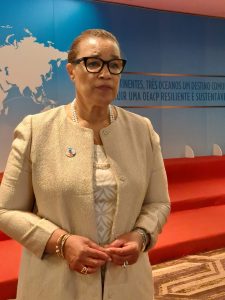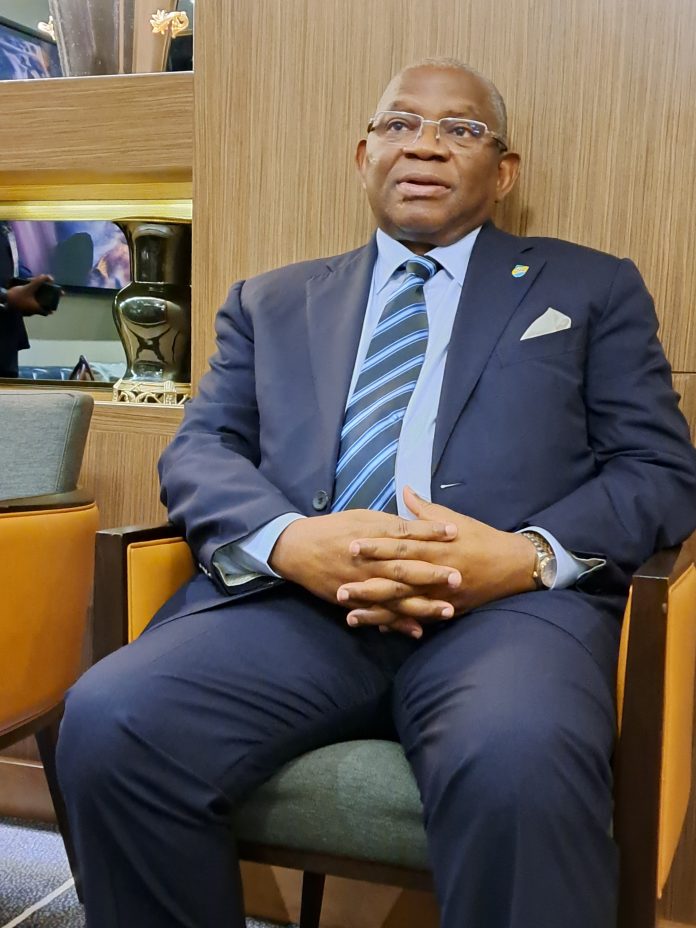By Pita Ligaiula in Luanda, Angola
The head of the member Organisation of African, Caribbean and Pacific States (OACPS) Georges Rebelo Chikoti has called on the European Union (EU) to sign the post-Cotonou deal with member states as the credibility of cooperation now hangs in the balance.
Chikoti made the plea after the 79-member OACPS concluded its 10th Head of States and Governments Summit in Luanda, Angola Friday.
The pact was initialled in April 2021 but remains unratified, 20 months after negotiations concluded between the European Union and African, Caribbean and Pacific (ACP) States.
The special relation that the OACPS share with the EU, governed by Cotonou Partnership Agreement will soon be replaced with the new SAMOA Agreement.
EU member Hungary, had urged the European Commission to demand tougher commitments on return and readmission of migrants throughout the negotiating process, continues to block attempts by the EU executive to ratify the agreement.
The European Parliament has repeated its demands that EU states break the deadlock and finalise the agreement.
In an interview after the Summit in Angola, SG Chikoti told journalists from Caribbean and Pacific, that he is hopeful the deal will be signed before June next year in Samoa, after it was postponed three times.
“It is already agreed among the OACPS member states that the agreement will be signed in Samoa. So, we are ready to do that. Now we’ve got to prepare ourselves. When? We need a date.
“We’ve been waiting for this date since last year, and we’ve already postponed the post-Cotonou signing three times now. It doesn’t look good because we initialled the post-Cotonou agreement in April 2021. So, I think that it is now time that we complete the formal signing so the new agreement can enter into force,” Chikoti told journalists in Luanda.
Chikoti said the pact promises greater political dialogue and development cooperation, though it will not change trading arrangements between the EU and ACP after a lengthy negotiation began in 2018 and concluded in 2020.
Chikoti also revealed no decision was reached on the host of the 11th Summit of the Heads States and Government in three years’ time.
“But what we agreed is that in the next few weeks we need to clarify with the European Union on the signing of the post-Cotonou Agreement which is supposed to be convened in Samoa, said Chikoti.
Meanwhile, the Commonwealth Secretary-General, Patricia Scotland said the just concluded summit was crucial because it brought together three regions to discuss issues affecting member states.
“It was really important that these three regions came together to discuss some of the issues which are pivotal now in our world, but also how do we create the wealth that is needed to enable all our people in those three regions to meet the sustainable development goals.
“We were talking about trade, about digitalisation, about how we can become green and blue in terms of delivering the changes that we need for a sustainable planet. It was a real moment of determination from all of us, particularly because all the multilateral agencies have to come together to deliver a sustainable future for everyone,” SG Scotland told journalists.

She said the Commonwealth has a role to play to unlock climate finance for member countries, especially those with sky-high levels of debt.
“Absolutely. The Commonwealth has a real role to play in terms of supporting the sustainable development goal agenda and delivery of Paris. You remember that it was the Commonwealth back in 1981 before the first COP was thought about, that identified climate change an existential threat.
“And the reason the Commonwealth highlighted that issue was because of the 42 small states in the world, the majority of them, 33, are in the Commonwealth group of nations.
“Our Commonwealth countries in the Pacific and the Caribbean are literally drowning as the sea rises, and they’re also drowning in the debt that has been accrued as a result of these climatic disasters. When a hurricane hits, it destroys buildings, bridges, hospitals, roads, all of which you have invested and taken debt to deliver it for their people,” said Scotland.
She said the OACPS, and the Commonwealth are doing their part in raising their voices on issues affecting member states such as climate change.
“We’re all raising our voices. I was delighted to be here. delighted to hear the strong statements coming from all over the African, Caribbean, and Pacific region. And we are one and we will remain one until this is done,” SG Scotland said.
SOURCE: PACNEWS














